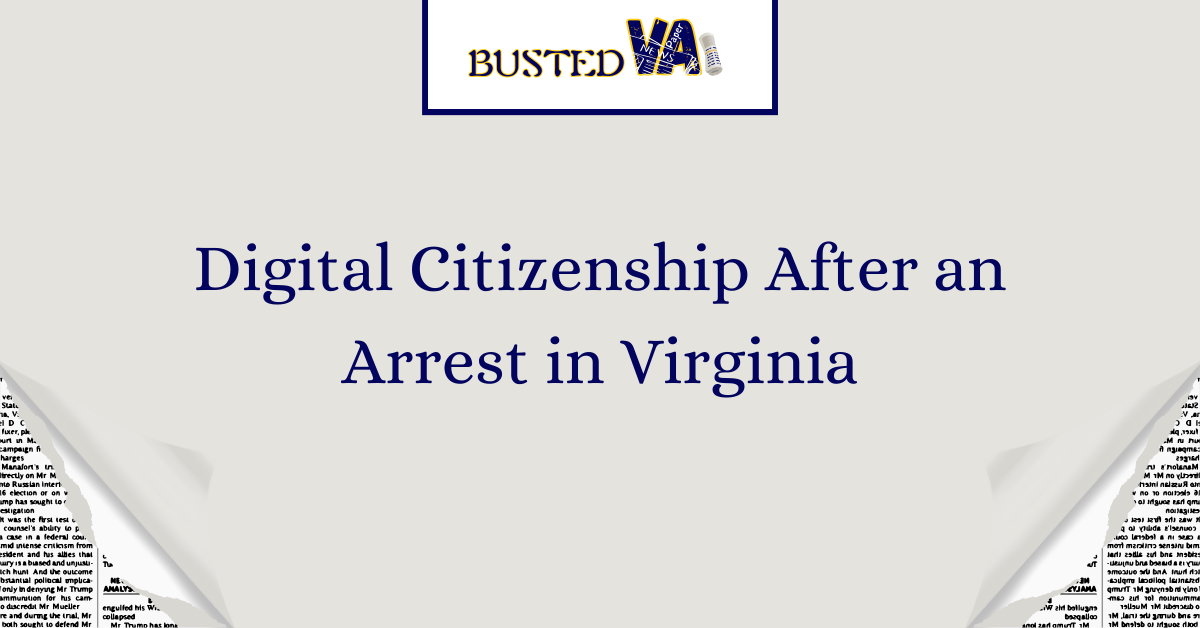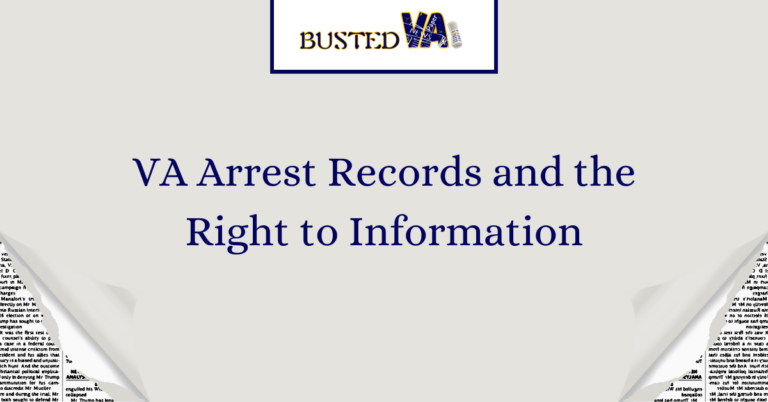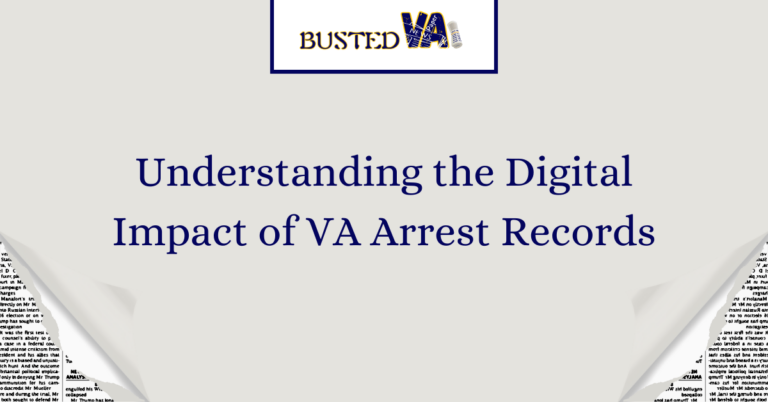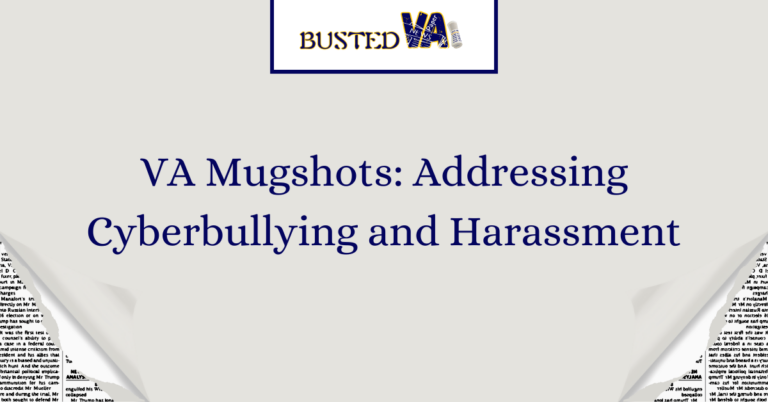Digital Citizenship After an Arrest in Virginia
Understanding digital citizenship is essential in today’s digital age. It encompasses the rights, responsibilities, and norms of appropriate behavior when using technology. However, what happens when an individual’s digital citizenship is challenged after an arrest in Virginia?
In this informative article, we will explore the implications and consequences of an arrest on one’s digital citizenship. We will delve into the potential impact on online reputation, privacy concerns, and the importance of understanding digital rights and responsibilities during legal proceedings. Whether you are a student, a professional, or simply someone interested in the intersection of law and technology, this article will provide valuable insights into navigating the digital landscape after an arrest in Virginia.
Understanding the Impact on Online Reputation
When an individual’s digital citizenship is challenged after an arrest in Virginia, one of the immediate concerns is the impact it can have on their online reputation. In today’s digital age, people often turn to search engines and social media platforms to gather information about others. A simple online search can reveal details about someone’s arrest, charges, and even mugshots.
Having this information readily available can be detrimental to one’s personal and professional life. Potential employers, colleagues, or even friends may come across this information and form negative opinions or judgments. It can hinder job prospects, damage relationships, and create a sense of embarrassment and shame.
Therefore, it is crucial for individuals to understand how to manage their online reputation after an arrest. Taking proactive steps such as creating positive content, engaging in digital storytelling, and utilizing privacy settings can help mitigate the negative impact on one’s online presence.
Addressing Privacy Concerns
Another significant aspect to consider when facing a challenge to digital citizenship after an arrest in Virginia is privacy. Arrest records are typically public information, and they can easily find their way onto various websites and databases.
This lack of privacy can be distressing, especially for those who wish to move on from their past mistakes and rebuild their lives. It is important to understand the laws and regulations regarding the removal of personal information from online platforms. In some cases, individuals may have the right to request the removal of certain information or to have it de-indexed from search engine results.
Working with legal professionals who specialize in online reputation management and privacy rights can provide valuable guidance and support in navigating these privacy concerns.
Navigating Digital Rights and Responsibilities during Legal Proceedings
During legal proceedings following an arrest, individuals must be aware of their digital rights and responsibilities. This includes understanding how law enforcement agencies may access and use digital evidence, as well as the potential impact of social media posts on the outcome of a case.
It is crucial to consult with legal counsel to ensure that digital rights are protected and that any online activity does not jeopardize the legal process. Being cautious about what is shared online and being mindful of the potential consequences can help individuals navigate the intersection of law and technology effectively.
Protecting Personal Information in the Digital Landscape
After an arrest, individuals may worry about the security of their personal information in the digital landscape. It is essential to take steps to safeguard sensitive data to prevent identity theft or unauthorized access to personal accounts.
Implementing strong passwords, enabling two-factor authentication, and regularly monitoring online accounts can help protect personal information. Additionally, individuals should be cautious about sharing personal details on social media or other online platforms, as this information can be used against them during legal proceedings.
Seeking Support and Resources
Going through an arrest can be a challenging and isolating experience. It is important to seek support and utilize available resources to navigate the digital landscape effectively.
There are organizations and online communities that provide guidance, advice, and support specifically tailored to individuals facing challenges to their digital citizenship after an arrest. Connecting with these resources can help individuals understand their rights, learn about strategies to rebuild their online reputation, and find emotional support during this difficult time.
FAQs
What is digital citizenship?
Digital citizenship refers to the responsible, ethical, and safe use of technology and the internet. It encompasses a set of behaviors, attitudes, and skills that individuals should practice while engaging in online activities. Key aspects of digital citizenship include respecting others’ privacy, using technology for positive purposes, understanding and abiding by online rules and policies, and being aware of the potential consequences of one’s online actions. Digital citizenship promotes a healthy and respectful online community, encouraging individuals to be mindful of their online presence and interactions.
What happens to my digital citizenship after an arrest in Virginia?
An arrest in Virginia, like in any other jurisdiction, may have implications for one’s digital citizenship, especially if the arrest results in public records or media coverage. Arrest records may become part of the public domain, potentially affecting an individual’s online reputation. In the digital age, information spreads quickly, and arrest details could surface on social media, news websites, or other online platforms. It’s important for individuals to be proactive in managing their digital citizenship after an arrest by considering steps to address the situation online.
To mitigate the impact on digital citizenship, individuals can take several actions. First, they should be aware of their rights regarding the disclosure of arrest records and work towards protecting their privacy online. Additionally, individuals may explore legal options to seal or expunge certain records, depending on the laws in Virginia. Managing one’s digital footprint, being transparent about the situation when necessary, and engaging in responsible online behavior can contribute to maintaining a positive digital citizenship, even in the face of legal challenges.
Ultimately, digital citizenship involves ongoing awareness and responsible behavior both online and offline. Individuals can take proactive steps to shape and protect their online identity, even in the aftermath of an arrest, by considering the potential digital consequences and taking appropriate actions to safeguard their reputation and privacy.
Can my digital citizenship be used against me in court?
Yes, your digital citizenship can be used as evidence against you in court if it is relevant to the case. This includes any online posts, messages, or other digital interactions that may be deemed relevant to the legal proceedings.
How can I protect my digital citizenship after an arrest?
To protect your digital citizenship after an arrest, it is important to be mindful of your online activities and communication. Avoid posting anything that could be used against you and be cautious about sharing personal information online.
Are there any legal consequences for violating digital citizenship after an arrest?
Yes, there can be legal consequences for violating digital citizenship after an arrest. If your online activities or communication are found to be illegal or in violation of any laws, you may face additional charges or penalties.







